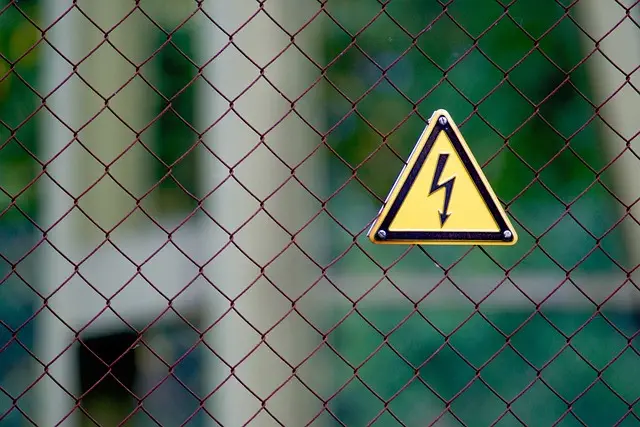Delta-8 THC, a synthetic cannabis compound, is gaining popularity as a potential home remedy for exhaustion and stress relief due to its milder psychoactivity and interaction with the endocannabinoid system. With easier access in vapes, edibles, and tinctures, users report reduced anxiety and relaxation. However, moderation and expert consultation are crucial due to varying individual reactions, potential side effects, and limited long-term research. Natural home remedies like quality sleep, balanced nutrition, hydration, exercise, meditation, and yoga offer effective alternatives without pharmaceutical risks. The legal status of Delta-8 THC varies globally, adding complexity for individuals considering it as a home remedy, especially with an evolving regulatory landscape.
“Uncover the intriguing world of Delta 8 THC, a synthetic cannabis-like compound gaining popularity. This article explores its psychoactive effects, offering insights into what to expect from this unique substance. From navigating its key differences with traditional cannabis to delving into safety and legal considerations, we also provide natural home remedies for exhaustion as alternatives. Discover the science behind Delta 8 THC and make informed decisions.”
- Understanding Delta-8 THC: A Synthetic Cannabis Compound
- Psychoactive Effects of Delta-8 THC: What to Expect
- Home Remedies for Exhaustion: Natural Alternatives to Consider
- Delta-8 THC vs. Traditional Cannabis: Key Differences
- Safety and Legal Aspects of Using Delta-8 THC
Understanding Delta-8 THC: A Synthetic Cannabis Compound

Delta-8 THC, a synthetic compound derived from cannabis, has gained attention for its psychoactive properties similar to tetrahydrocannabinol (THC), but with some potential differences. Unlike Delta-9 THC, which is responsible for most of cannabis’s intoxicating effects, Delta-8 THC offers a milder high and is often sought after as a home remedy for exhaustion and stress relief. This compound interacts with the endocannabinoid system in our bodies, affecting mood, appetite, and pain perception.
The synthesis of Delta-8 THC allows for a controlled production process, making it accessible in various forms like vapes, edibles, and tinctures. While some users claim it provides a clear and calming experience, reducing anxiety and promoting relaxation without the intense cognitive impairment associated with Delta-9 THC, further research is needed to fully understand its effects on different individuals. As with any substance, moderation is key, and exploring home remedies for exhaustion should involve consulting healthcare professionals to ensure safety and efficacy.
Psychoactive Effects of Delta-8 THC: What to Expect

Delta-8 THC, a synthetic compound derived from cannabis, has gained attention for its psychoactive properties that offer an alternative experience to traditional Delta-9 THC. While it’s often sought as a home remedy for exhaustion and stress relief, understanding its effects is crucial. Users report feeling a sense of euphoria and relaxation similar to cannabis, but with less intense cognitive impairment.
The psychoactive effects typically set in within 30 minutes to an hour after consumption and can last for several hours. This makes it appealing for those seeking respite from daily pressures or looking for an alternative to conventional sleep aids. However, individual reactions vary, and it’s important to be aware that Delta-8 THC may still produce a ‘high’ feeling, potentially impacting coordination and judgment, which is not ideal for activities requiring full alertness, such as driving or operating heavy machinery.
Home Remedies for Exhaustion: Natural Alternatives to Consider

Exhaustion is a common issue that can stem from various factors, including stress, poor sleep, and an imbalanced diet. While many people turn to prescription medications or synthetic compounds like Delta 8 THC for relief, there are numerous natural home remedies worth considering first. Incorporating these into your daily routine may help combat exhaustion without the potential side effects of pharmaceutical interventions.
Simple yet effective strategies include getting enough sleep, maintaining a balanced diet rich in fruits and vegetables, staying hydrated, and incorporating regular physical activity. Additionally, practices like meditation, deep breathing exercises, or yoga can promote relaxation and reduce stress levels, all of which contribute to combating fatigue naturally.
Delta-8 THC vs. Traditional Cannabis: Key Differences

Delta-8 THC, a synthetic compound derived from cannabis, has gained attention as a potential alternative to traditional cannabis. While both compounds share similarities, there are distinct differences that set them apart. One key distinction lies in their effects and potency. Delta-8 THC is known for producing milder psychoactivity compared to its more well-known counterpart, Delta-9 THC, often associated with the intoxicating high of marijuana. This makes Delta-8 a popular choice for those seeking subtle enhancements without intense cognitive alterations.
Additionally, Delta-8’s legal status differs geographically, offering a loophole in regions where cannabis is largely prohibited. Many individuals turn to Delta-8 as a home remedy for exhaustion and stress relief due to its potential relaxing properties. However, research on its long-term effects remains limited, prompting caution when considering it as an alternative treatment for common ailments like exhaustion, especially compared to established home remedies or medical interventions.
Safety and Legal Aspects of Using Delta-8 THC

Using Delta-8 THC, a synthetic compound similar to cannabis, comes with safety and legal considerations that are crucial to understand before use. While some advocate for its potential therapeutic benefits in treating conditions like chronic pain or anxiety, especially as an alternative to prescription medications, it’s essential to approach this substance with caution. There is limited scientific research on Delta-8 THC compared to its better-studied counterpart, Delta-9 THC, leaving gaps in knowledge about its long-term effects and potential risks.
The legal status of Delta-8 THC varies across regions, making it a complex area for consumers. In some places, it may be completely illegal or subject to strict regulations, while in others, it might be available as an additive in certain products. Before considering Delta-8 THC as a home remedy for exhaustion or other conditions, individuals should carefully review local laws and consult reliable sources to ensure compliance with their jurisdiction’s rules. This is especially important given the evolving nature of regulations surrounding this synthetic compound.
In conclusion, while Delta 8 THC offers unique psychoactive experiences, it’s crucial to balance potential benefits with safety concerns. Understanding its effects and comparing it to traditional cannabis is key. Moreover, exploring natural alternatives like home remedies for exhaustion can provide a holistic approach to well-being. Remember that, as with any substance, informed decisions and responsible usage are essential.






